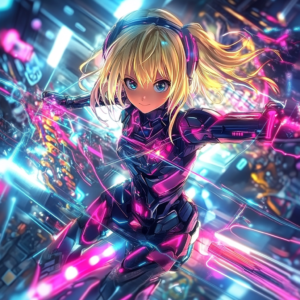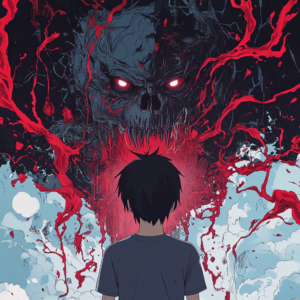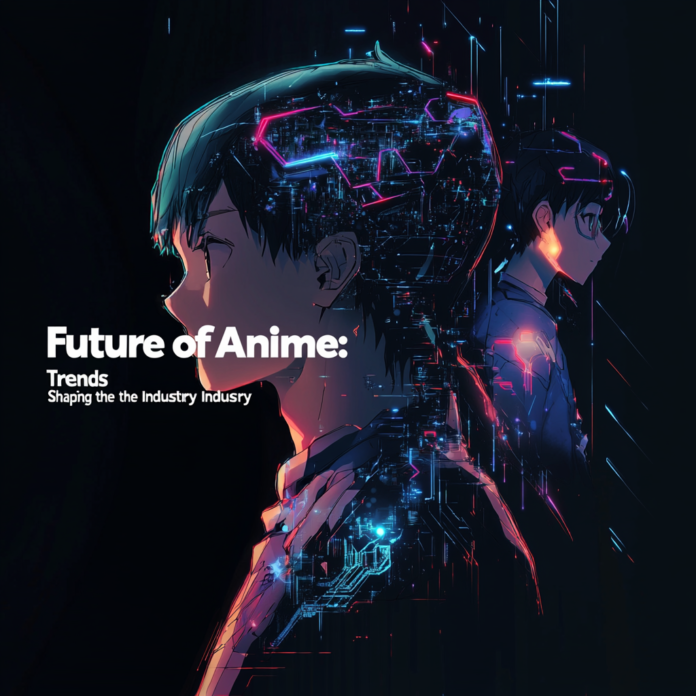1. Introduction
Anime has long captivated audiences around the world with its distinctive art style, compelling narratives, and innovative storytelling. As we look to the future, it is clear that the medium is undergoing rapid change. In this comprehensive guide, Future of Anime: Trends Shaping the Industry explores the various forces redefining how anime is created, distributed, and experienced. Our focus keyword, Future of Anime: Trends, underpins our discussion as we examine technological innovations, evolving narrative techniques, and the global influences that are driving the industry forward. Whether you are a longtime fan, a casual viewer, or an industry insider, this article will provide you with a detailed understanding of the changes shaping the world of anime. For additional insights on evolving storytelling, visit Breaking Down the Latest Anime Movie Plot Twists and join discussions on Exploring Anime Fandom: Trends, Theories and More.

2. The Importance of Innovation in Anime
Innovation is the lifeblood of creative media, and nowhere is this more evident than in anime. In today’s fast-paced digital age, the ability to innovate is critical for the survival and growth of the industry. By embracing new methods, technologies, and narrative approaches, creators are able to continually push the boundaries of what anime can be. This drive for innovation is a central element of Future of Anime: Trends—a concept that reflects the dynamic changes influencing every aspect of production, storytelling, and viewer engagement. From integrating traditional techniques with modern CGI to experimenting with interactive experiences, the evolution of anime is propelled by the relentless pursuit of creative excellence. Industry pioneers often cite innovation as the key to staying relevant in an ever-changing global market, ensuring that the medium not only entertains but also inspires future generations of artists.
3. Historical Shifts and Industry Evolution
Early Beginnings and Pioneering Efforts
Anime began as a niche art form rooted in Japan’s rich cultural traditions. Early series relied on hand-drawn techniques and simplistic narratives that focused on moral lessons and clear character archetypes. Despite the limitations of the era, these works laid the groundwork for future experimentation and narrative depth.
Transitional Periods and Growing Complexity
As the industry evolved, so did its storytelling techniques. The introduction of serialized narratives allowed for more intricate character development and multi-layered plots. During this transitional phase, creators began exploring more nuanced themes, and characters evolved beyond mere stereotypes into complex individuals.
Modern Era of Innovation
Today, the anime industry is characterized by its blend of traditional artistry and cutting-edge technology. Digital tools have enabled creators to produce fluid animations and immersive visual effects, radically transforming the production process. This historical evolution underscores the shift from early experimental works to the sophisticated productions of today, illustrating the dynamic journey that defines Future of Anime: Trends.
4. Technological Advancements and Digital Transformation
Embracing Digital Tools
The adoption of digital animation tools has been a game changer for anime production. Modern anime frequently combines classic hand-drawn elements with digital enhancements such as CGI, motion capture, and real-time rendering. These tools allow for greater detail, smoother transitions, and more complex visual effects, which in turn enhance the storytelling process.
Role of Artificial Intelligence
Artificial intelligence (AI) is beginning to revolutionize various aspects of production, from automating routine tasks like in-betweening to enhancing color accuracy and animation fluidity. AI-driven tools enable studios to streamline workflows, reduce production time, and allocate more resources toward creative innovation.
Interactive and Immersive Technologies
The future of anime is also being shaped by interactive technologies. Augmented reality (AR) and virtual reality (VR) offer new ways for viewers to engage with content, creating immersive experiences that go beyond traditional screen viewing. These innovations open up possibilities for interactive storytelling, where fans can influence narrative outcomes and explore animated worlds in unprecedented ways.
Digital Transformation Impact
Overall, the digital transformation in anime production is one of the primary factors driving the Future of Anime: Trends. By blending technology with traditional artistry, the industry is poised to produce content that is both visually stunning and narratively complex. For more on digital innovations, visit Cartoon Brew.
5. Changing Narrative Structures and Genre Fusion
Evolution of Storytelling
Modern anime no longer adheres to rigid, formulaic storytelling. Instead, it embraces non-linear narratives, multi-layered plots, and unexpected twists that challenge viewer expectations. These evolving narrative structures are a key component of the Future of Anime: Trends as they allow for richer, more engaging stories.
Genre Blending and Innovation
One of the most exciting developments is the fusion of genres. Anime today seamlessly blends elements of fantasy, science fiction, drama, romance, and even horror. This genre-blending enables creators to explore complex themes from multiple perspectives, enriching both character development and overall storytelling. By breaking down traditional genre barriers, modern anime creates narratives that are both unpredictable and deeply resonant with diverse audiences.
Impact on Character and World-Building
The shift in narrative structures has a direct effect on character development and world-building. As stories become more layered, characters must adapt and evolve to fit into more complex universes. This dynamic evolution is a clear example of how Future of Anime: Trends are redefining storytelling, pushing creators to innovate continually while keeping the audience engaged.
6. Globalization and Cross-Cultural Influences
Expanding International Audiences
Globalization has dramatically expanded the audience for anime. Streaming platforms like Netflix, Crunchyroll, and Amazon Prime have made anime accessible worldwide, exposing diverse viewers to Japanese storytelling traditions. This international reach has forced creators to consider global perspectives, leading to narratives that are both culturally specific and universally appealing.
Cross-Cultural Collaborations
As the anime industry becomes increasingly global, collaborations with international studios and creators are on the rise. These partnerships bring together different artistic sensibilities and narrative techniques, enriching the medium with a fusion of ideas. Cross-cultural collaborations not only diversify storytelling but also introduce innovative elements that align with the evolving Future of Anime: Trends.
Influence on Content and Themes
The integration of global cultural elements has influenced anime themes, resulting in stories that reflect a broader spectrum of human experiences. This diversity enhances character development and narrative complexity, ensuring that anime remains relevant and impactful across different cultures and markets. For more on global influences, check out Crunchyroll News.
7. Emerging Visual Styles and Animation Techniques
Innovative Artistic Approaches
Visual style is a vital part of how anime tells its story. Artists are continually experimenting with new techniques, from hyper-detailed digital effects to unconventional color palettes that push the boundaries of traditional aesthetics. These emerging visual styles are central to the Future of Anime: Trends, creating a fresh, modern look that captivates audiences.
Fusion of Traditional and Digital Methods
One of the most notable trends is the seamless integration of classic hand-drawn techniques with modern digital animation. This fusion not only preserves the nostalgic charm of traditional anime but also enhances it with crisp details and dynamic motion, making characters and environments more lifelike and engaging.
Impact on Visual Storytelling
Innovative animation techniques have a significant impact on visual storytelling. Advanced camera movements, intricate backgrounds, and digital compositing work together to create immersive, cinematic experiences. These visual innovations help to express complex emotions and subtle narrative shifts, reinforcing the evolving nature of anime storytelling. For additional insights, visit Anime News Network.
8. Impact of Streaming Platforms and New Distribution Models
Revolutionizing Access
The rise of streaming platforms has revolutionized the way anime is distributed and consumed. Services such as Crunchyroll, Netflix, and Funimation have made anime more accessible than ever before, providing viewers with instant access to a vast library of titles. This shift has influenced the Future of Anime: Trends by encouraging creators to produce content that appeals to a global audience.
Changing Production and Distribution
The new distribution models allow for flexible release schedules and targeted content, which in turn drives innovation in storytelling and production. Studios are now able to experiment with formats and series lengths that were previously unfeasible under traditional broadcast schedules. This flexibility has led to a surge in high-quality productions that cater to niche markets as well as mass audiences.
Enhanced Viewer Engagement
Streaming platforms also foster greater viewer interaction through social media integration, live chats, and fan forums. These tools allow creators to receive real-time feedback and adjust their storytelling approaches accordingly. The synergy between digital distribution and audience engagement is a significant factor in shaping the Future of Anime: Trends and ensuring that the medium evolves in step with viewer preferences.
9. The Role of Social Media and Fan Engagement
Building a Global Community
Social media has become a cornerstone for the anime community, enabling fans to connect, share, and engage with content in unprecedented ways. Platforms like Twitter, Reddit, and Instagram serve as hubs for discussion, fan art, and live interaction during premieres and events. This vibrant community interaction plays a crucial role in shaping the Future of Anime: Trends by influencing creative decisions and boosting international popularity.
Direct Feedback and Collaborative Influence
Fan feedback on social media often reaches creators directly, leading to adjustments in narratives and even inspiring new storylines. Through interactive polls, live Q&A sessions, and online discussions, the audience becomes an active participant in the creative process. This collaborative dynamic not only enriches the storytelling experience but also ensures that anime remains responsive to its global fan base.
Enhancing the Viewing Experience
The integration of social media into the anime experience has led to more immersive and engaging content. Real-time discussions, behind-the-scenes content, and fan-driven initiatives create a sense of community that extends beyond the screen, reinforcing the trends that shape the future of anime.
10. Overcoming Challenges in Long-Running Series
Maintaining Continuity and Consistency
In long-running anime, sustaining character arcs and narrative coherence over numerous episodes is a formidable challenge. Creators must ensure that new developments are in harmony with the established history and personality of each character. Detailed production bibles, regular revisions, and creative workshops are vital tools in this process.
Adapting to Shifts in Creative Teams
Frequent changes in creative personnel can lead to inconsistencies in storytelling. To mitigate this, studios invest in comprehensive documentation and robust communication channels that help new team members align with the original vision. This collaborative approach is essential for preserving the integrity of the narrative over time.
Balancing Innovation with Established Narratives
Introducing fresh ideas while staying true to the core essence of a series is a delicate balance. Continuous innovation must not disrupt the continuity that fans have come to expect. Creators use iterative feedback, pilot episodes, and internal reviews to test new concepts before fully integrating them into the storyline.
Leveraging Audience Feedback
Fan engagement provides a valuable resource for addressing narrative inconsistencies. By actively monitoring feedback on social media and fan forums, creators can identify areas where the story may be faltering and make necessary adjustments. This iterative improvement process helps ensure that character evolution and narrative progression remain coherent and impactful.
11. Future Trends in Character Development
Technological Innovations
Emerging technologies are set to transform the way anime is produced and experienced. Augmented reality (AR) and virtual reality (VR) offer immersive experiences that allow viewers to interact with characters in new, engaging ways. These technologies enable a more dynamic form of storytelling that could redefine how character evolution is portrayed on screen.
Shifting Narrative Formats
As the medium evolves, narrative formats are becoming more flexible and experimental. Non-linear storytelling, interactive narratives, and branching story paths are gaining popularity, giving audiences a more personalized viewing experience. This shift is poised to further influence the Future of Anime: Trends by encouraging creators to explore innovative ways of presenting character arcs.
Global Collaborations and Diversity
With anime reaching a broader international audience, global collaborations are becoming increasingly common. These partnerships bring together diverse cultural perspectives, enriching narratives with new ideas and fresh storytelling techniques. The integration of varied influences is expected to produce more inclusive and multifaceted characters, ensuring that anime continues to evolve in a way that resonates globally.
Impact on Production Workflows
Advancements in artificial intelligence (AI) and machine learning are streamlining production workflows, allowing for faster and more efficient animation processes. This technological progress enables creators to experiment more freely with narrative and visual elements, ultimately contributing to a richer and more dynamic evolution of storytelling.
For a glimpse into these emerging trends, watch this YouTube video on digital animation innovations.
12. Frequently Asked Questions
Q1: What is the Future of Anime: Trends Shaping the Industry?
It refers to the emerging changes and innovations that are redefining how anime is created, distributed, and experienced.
Q2: How are technological advancements influencing anime production?
They allow for more detailed animation, smoother transitions, and the integration of interactive experiences, enhancing both visual quality and narrative depth.
Q3: What role do global collaborations play in shaping anime?
They bring diverse cultural perspectives and innovative storytelling techniques that enrich narratives and expand anime’s global appeal.
Q4: How has streaming changed the anime industry?
Streaming platforms have revolutionized distribution, making anime accessible worldwide and influencing production by adapting content to a global audience.
Q5: What challenges do long-running series face in maintaining continuity?
They must balance new narrative developments with established character arcs, often using detailed production documentation and iterative feedback to ensure consistency.
13. Call to Action & Affiliate Offers
If you’re interested in diving deeper into other topics, I recommend checking out this comprehensive guide that walks you through each step with video tutorials, downloadable resources, and expert insights. Check it here. Your support is essential in helping us continue delivering high-quality content that inspires and informs.
14. Exclusive Visual Showcase
To visually complement this guide, here is an exclusive image created specifically for this article, capturing the futuristic vision and innovative spirit that defines emerging trends in anime.

15. Creator Interview Case Study
As a special feature, we present a detailed case study from an in-depth interview with an influential anime director. In this interview, the director discusses how emerging technologies and global influences are reshaping narrative strategies and production techniques. He explains how the incorporation of digital tools, such as CGI and real-time rendering, has enhanced his creative process, allowing for more dynamic storytelling. He also highlights the importance of global collaboration and audience feedback in shaping the direction of modern anime. This case study provides actionable insights into how the industry is evolving and offers valuable lessons for aspiring creators looking to adapt to the changing landscape. For a visual overview of this process, watch this YouTube video on behind-the-scenes anime production innovations.

16. The Vision for the Future
Looking ahead, the Future of Anime: Trends that are shaping the industry promise to redefine storytelling and production methods. Creators are increasingly exploring interactive formats, allowing viewers to engage with content in immersive ways. The integration of augmented reality (AR) and virtual reality (VR) is set to create experiences where the audience can step inside the narrative, interacting with characters and environments. In addition, advancements in artificial intelligence (AI) are streamlining workflows, making it possible to produce higher quality animations at a faster pace. Global collaborations will continue to bring diverse creative voices into the fold, leading to innovative narrative structures and enriched character arcs. This visionary outlook is fueling a new era of anime that is both technologically advanced and emotionally resonant, marking a pivotal moment in the evolution of the medium.
17. Conclusion
Future of Anime: Trends Shaping the Industry provides an in-depth exploration into the transformative forces redefining anime. Through detailed analyses of technological advancements, narrative evolution, and global influences, this guide has illuminated how innovation drives the industry forward. The insights shared—from the integration of cutting-edge digital tools to the evolution of storytelling formats—demonstrate that the future is bright for anime. Every shift in technology, every new distribution model, and every collaborative effort is a testament to the enduring power of creativity. As you continue to follow your favorite series and discover new ones, take a moment to appreciate the dynamic changes shaping the industry. Let this guide inspire you to embrace the possibilities of tomorrow, knowing that the Future of Anime: Trends will continue to revolutionize the way stories are told and experienced. Thank you for joining me on this enlightening journey; may your passion for anime and innovation never cease to grow.
